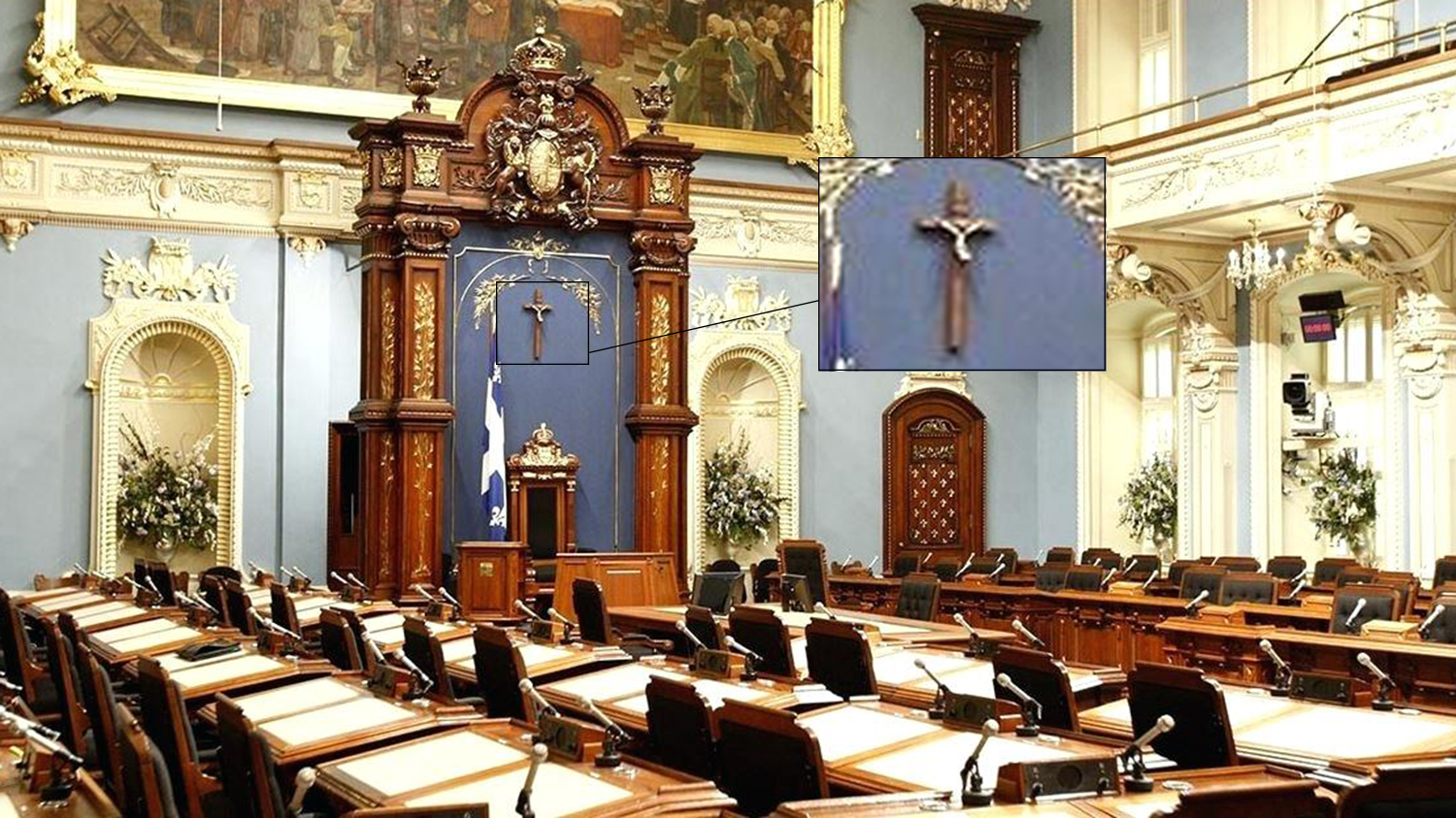Quebec’s Incoming Premier Defends Banning Religious Symbols But Leaving Crucifix Up

François Legault, Quebec’s incoming premier, is defending his decision to ban “religious symbols” but leave a crucifix hanging in Quebec’s National Assembly.
The crucifix has been in the National Assembly since 1936 when it was hung by Premier Maurice Duplessis, a staunch Catholic who would brag about having the only Catholic government in North America. For the last 82 years, the most popular religious symbol in Christianity has hung just above the speaker’s chair. Legault is defending his hypocrisy by stating that Christian values are what built Canada so the crucifix is a historical symbol, not a religious one.
“We have to understand our past,” the CBC reports he told reporters in Austria while there for a conference. “In our past we had Protestants and Catholics. They built the values we have in Quebec. We have to recognize that and not mix that with religious signs.”
At the start of the month, Legault’s Coalition Avenir Québec won 74 seats in the National Assembly, giving the party a majority. Some of the key positions Legault ran on focused on immigrants—reducing immigration and putting newcomers through a value and language test. Upon winning, Legault vowed to do ban public workers in positions of authority from wearing religious symbols at work.
Legault, hopping aboard the train started by Ontario Premier Doug Ford, stated that he would use the notwithstanding clause to push it through if his law was to face any challenges. The 61-year-old, who has been the leader of the CAQ since 2011, officially takes the reigns of Quebec on October 18.
This isn’t the first time that this particular crucifix has become the subject of news coverage in Quebec. In 2007, a commision that focused on secularism and “reasonable accommodation of minorities” recommended the crucifix be moved but the government just, you know, ignored that recommendation. Since then the topic has come up periodically as the Quebec government has mulled over banning religious symbols over the years.
Now, I’m not going to anglo-splain Quebec—they tend to not like that—but a lot of this stems from the province’s strange identity politics in which, some of them, are hyper-focused on preserving their identity and heritage. This strain of identity politics has become a potent well that some parties that lean far-right or nationalistically tap for support. Not all politicians in Quebec lean on this sense of preservation, however. Shortly after news of Legault’s plan came out, Pierrefonds-Roxboro Mayor Jim Beis made an impassioned plea on Facebook against the CAQ’s plan.
“As a proud Canadian of Greek roots, I wish to express my undisputable opposition to the CAQ’s plan of banning religious signs from the public sector,” reads Beis’ post. “The CAQ is turning the concept of neutrality into a Trojan Horse to implement policies of exclusion and division.”
“No Quebecers should have to choose between their careers and their faith. No one, including women, should be told how to dress and in no way does one’s attire determine one’s ability to perform their job.”
Now, because we’re not stupid, we’ve all known what the religious symbols ban was about—targeting Muslims and other minority faiths—the only thing Legault is doing at this point is giving away the game. It’s surprising that he would be so blatant in regards to the picking and choosing, yes, but let’s not pretend we’re learning something we didn’t already know at this point.
Sign up for the VICE Canada Newsletter to get the best of VICE Canada delivered to your inbox.
Follow Mack Lamoureux on Twitter.